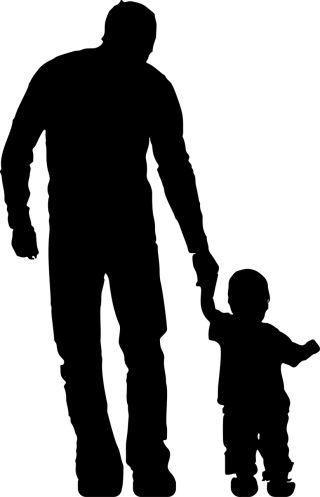Fear
It Takes Courage to Change
A Personal Perspective: Courage enables us to grow.
Updated June 12, 2023 Reviewed by Tyler Woods

I’ve written in this blog about being afraid of going to school because I was bullied by older boys. By fourth grade, however, the bullying subsided; probably because I’d learned how to avoid the upper-class students. Unfortunately, it picked back up again in fifth grade because my own classmates started bullying me. This time I wasn’t afraid, I was angry; and after a few boxing lessons from my dad, I developed the courage to stand up to the bullies and fight back. Before the school year was over, the bullying had ended. Sixth grade was peaceful; my state of consciousness had improved. I even made a new best friend—one of the boys who bullied me the year before.
“It takes courage to grow up and become who you really are.” -E.E. Cummings
I’ve also written in this column that I was bullied by my mother, which I believe set me up to be bullied at school. For decades after fifth grade, I believed I'd gotten past being bullied, but 14 years ago I realized I was still being bullied. This time by my lovers. At that time I recognized I was attracting a certain type of woman; that I was the common denominator; that I had a pattern, and that the problem resided in me. I was determined to discover the source of that problem and solve it. So, I set out on an intentional journey of self-discovery.
“Life shrinks or expands in proportion to one's courage.” -Anais Nin
Along that journey I became interested in learning more about states of consciousness. For several years, I kept hearing people say, “You will achieve success when you raise your state of consciousness,” but I didn’t understand what that meant. Then, at the end of a romantic relationship, I went into a deep depression that actually made me physically ill. Getting so sad that I became sick crystallized the concept for me—except in reverse—I recognized that I had perhaps lowered my state of consciousness. I was grieving. I had failed yet again and I was becoming apathetic. I knew that time would heal the wounds of my heartbreak, but a question remained, “How do I raise my state of consciousness?”
"Courage doesn't happen when you have all the answers. It happens when you are ready to face the questions you have been avoiding your whole life." -Shannon L. Alder
I’ve written several times about the powerful emotion of fear. How it is a survival mechanism; that it can be manipulated; and how knowledge—not courage—is its opposite. I have also written about dealing with change, because many people—myself included—fear change. Sometimes we are forced to change, but most of the time we avoid it until we can see a convincing benefit. The bottom line is: when we fear change it will take courage to change.
“A man with outward courage dares to die; a man with inner courage dares to live.” -Lao Tzu
On my journey of self-discovery I am learning about shadow work and inner child work; how we sometimes repress trauma that we experienced as young children; how we may dissociate from the memories of situations that caused pain, suffering, or fear. I’ve also come to understand that because we were so dependent on our parents for survival when we were children, we sometimes develop behaviors and beliefs that pleased an abusive caregiver but hinder our growth and maturity as adults. Behaviors and beliefs that helped us survive as children become buried in our subconscious and continue to guide us as adults even though we are no longer faced with the same dilemmas. We think, “If I don’t do what Mommy or Daddy says, they won’t love me anymore and I will die.” I quickly learned in my home that only my mother was allowed to have emotions. I was taught to repress my anger; I was not even allowed to cry.
“The most courageous act is still to think for yourself. Aloud.” -Coco Chanel
Recently, a friend recommended the book Power vs. Force by David R. Hawkins, M.D., Ph.D. Hawkins was a psychiatrist who created an index that listed emotions on a rising scale of states of consciousness. He placed courage as the midpoint between the negative and positive emotions. From the bottom to the top, his list of emotions include: shame, guilt, apathy, grief, fear, desire, anger, pride, courage, neutrality, willingness, acceptance, reason, love, joy, peace, and enlightenment. I was excited to see these various states of consciousness ranked in an easy-to-understand order that helps me better understand this challenging concept.
“The secret to happiness is freedom... And the secret to freedom is courage.” -Thucydides
As I have looked back through my life, I realized that I have experienced various states of consciousness that were mostly in the negative range. However, when I look back to fifth grade, I see that I advanced from fear to anger to courage and finally peace. Finding the courage to stand up for myself was liberating. Today, I am drawing on my courage to do shadow and inner child work. I hope to uncover the source of my limiting beliefs and behaviors so that I can change them.
In the meantime, I will continue to study the concept of state of consciousness. I would like to find peace again, and maybe even joy and enlightenment.


